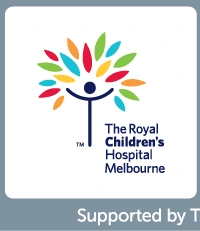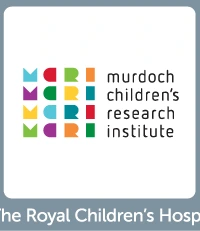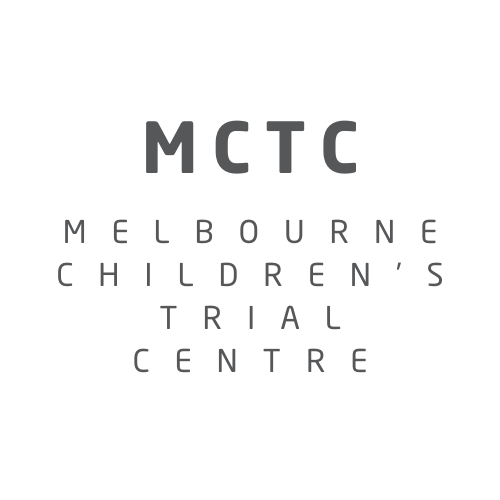Accreditation
What is Accreditation?
Australian Health Service Safety and Quality Accreditation Scheme
Under the National Health Reform Act 2011, the Australian Commission on Safety and Quality in Health Care (the Commission) is responsible for the formulation of standards relating to health care safety and quality matters. This includes formulating and coordinating the Australian Health Service Safety and Quality Accreditation Scheme (the AHSSQA Scheme), which provides for the national coordination of accreditation processes.
The AHSSQA Scheme sets out the responsibilities of accrediting agencies in relation to implementation of the following safety and quality standards:
- National Safety and Quality Health Service (NSQHS) Standards including the:
-
- Multi-Purpose Services Aged Care (MPS) Module
-
- National Clinical Trials Governance Framework
- National Safety and Quality Digital Mental Health (NSQDMH) Standards
- National Safety and Quality Primary and Community Healthcare (NSQPCH) Standards
- Mental Health Standards for Community Managed Organisations
- and any other set of standards that may be developed by the Commission from time to time.
Yes, if you are an MCRI staff member conducting clinical trials at a hospital, those trials will be assessed under the National Clinical Trials Governance Framework (NCTGF). The NCTGF is part of hospital accreditation, and all health service organizations, including MCRI, conducting clinical trials will be assessed against it. MCRI is involved because it is a research institute that often conducts clinical trials in partnership with hospitals.
Australian health services are subjected to Short Notice Assessment for accreditation to the NSQHS Standards. This program ensures that the outcomes reflect the day to day practices, identifies gaps and supports health service organisation to improve safety and quality system processes.
A short notice assessment may occur at any time during a three-year accreditation cycle. It will involve an on-site assessment of all applicable actions from the eight NSQHS Standards and where applicable the Clinical Governance Standard and the Partnering with Consumers Standard for clinical trial service provision, during a single assessment visit.
A health service is given 24hours notice of an on-site assessment i.e. one full business day before assessment commences.
For further information on Short Notice Assessment see: Short Notice Assessment | Australian Commission on Safety and Quality in Health Care.
- For a health service organisation with up to 100 clinical trials that are to be assessed, the following calculation will be used: Five clinical trials plus one quarter of all remaining clinical trials are to be assessed, (rounded up to the nearest whole number)
- For health services with more than 100 clinical trials that are to be assessed, sampling will be capped at 30 trials
As the MCRI/RCH has more than 100 clinical trials, we can expect to be assessed on up to 30 trials.
Key information required for sampling: (Note DERP was built to enable easy access to this information)
- Department or specialisation (for example, neurology, oncology, endocrinology)
- Clinical trial name
- Clinical trial phase (I, II, III, IV)
- Sponsor type (for example, commercial, university, hospital) and sponsor name
- Principal investigator (name and position)
- Number of staff allocated to the trial — this includes the names of people from contributing departments
- Number of patients in the trial
- Number of Aboriginal and Torres Strait Islander and linguistically diverse patients in the trial
- Treatment Trials: These trials test new medicines, combinations of medicines, new medical devices, or new surgical approaches.
- Diagnostic Trials: These trials evaluate tests used to detect diseases.
- Prevention Trials: These trials test new ways to prevent diseases.
- Teletrials: These trials are conducted remotely, often utilizing technology to deliver care and research to patients in remote locations.
- Experimental Drugs and Diagnostics: Trials involving new drugs, diagnostic tools, or other experimental interventions.
- Biological Products: Trials that evaluate the safety and effectiveness of biological products, such as vaccines or therapies.
- Medical Devices: Trials that investigate the performance and safety of new medical devices.
- Health-Related Service Changes: Trials that evaluate the impact of changes to health service delivery, such as new models of care.
The NCTGF also addresses various aspects of clinical trials, including:
- Monitoring and Reporting: Ensuring that trials are conducted according to ethical guidelines and that data is collected and reported accurately.
- Preventive Care and Educational Interventions: Trials that focus on preventing disease or improving health through educational programs or lifestyle interventions.
- Data Management: Establishing systems for collecting, storing, and analyzing trial data.
- National Mutual Acceptance: Working towards a nationally consistent approach to ethics approvals for clinical trials.
- Psychological, Behavioral Treatments, and Social Interventions: Trials that explore the impact of psychological, behavioral, or social interventions on health outcomes.
- Trial-Related Financial Management: Managing the financial aspects of clinical trials, including funding and budgeting.
Assessors will gather evidence from a variety of sources including:
- Interviews with members of the workforce, consumers and their nominated representatives, health care providers, clinical trial participants and sponsors, allied health workers, volunteers, and contractors
- Observation of workforce practices and interactions with consumers across all operational and clinical areas
- Review of documents and records to confirm that safety and quality systems are described in policies and procedures, to assess compliance and review reported outcomes
- Examination of how the Health Service Organisations [link to term in Glossary] quality improvement systems are used to reduce risks.
What is the National Clinical Trials Governance Framework?
Australian Health Service Safety and Quality Accreditation Scheme
The National Clinical Trials Governance Framework (NCTGF) is the National Safety and Quality in Healthcare standards for the conduct and accreditation of clinical trials service.
It applies to all aspects of hospital service and support of clinical trials, and describes the roles and responsibilities for staff who are involved in clinical trial provision.
The Australian Commission for Safety and Quality in Healthcare (The Commission) have developed a video that explains what the NCTGF is.

The Australian Commission for Safety and Quality in Healthcare (the Commission) developed the NCTGF with a plan to support:
- High quality research and better outcomes for patients and the broader community
- A nationally consistent approach to the accreditation of health services for the conduct of clinical trials
- Clinical trials as a core part of routine hospital service delivery
- Patient trust and participation in high quality research
- Incentive for research investment in Australia
The NCTGF incorporates the first two Safety and Quality in Health Service Standards.


Accreditation is an evaluation process that involves assessment of a health service organisation’s compliance with the safety and quality standards by an accreditation agency.
The RCH assessment agency is Quality Innovation Performance Limited (QIP). The agency will assess up to 30 trials. They are selected by the accrediting agency, without taking into consideration the preference of the health service organisation or the researchers.
The assessors are trained to understand that assessment adds pressure to the clinical trials workforce and will work in a collaborative and supportive way. They will spend the majority of their time reviewing trial service operations, including interviewing staff, patients / participants and consumers.
See the Melbourne Children’s Trial Centre – Accreditation Factsheet - FAQs
The first assessment for RCH will be rated in accordance with a maturity rating scale. After the initial assessment to this maturity scale, subsequent accreditaiton will be assessed as ‘Met’ or ‘Not Met’.

Yes, clinical trials of medicines and biologicals regulated under the TGA’s CTN or CTA schemes are subject to the TGA’s Good Clinical Practice (GCP) inspection program. The scope of a TGA inspection is to examine your compliance with the applicable Australian Legislation and guidelines:
- Therapeutics Goods Act 1989 (the Act)
- Therapeutics Goods Regulations 1990 (the Regulations)
The focus of the NSQHS accreditation is on systems and processes for clinical governance and partnering with consumers. The assessors will not do a deep dive into a particular study.
Need to know more?
Factsheets to come:
Melbourne Children’s Campus – National Clinical Trials Governance Framework
Melbourne Children’s Campus – How to prepare for NCTGF Accreditation
Melbourne Children’s Campus – NCTGF Accreditation – sample questions
Melbourne Children’s Campus – NCTGF Accreditation – Frequently Asked Questions
Contact [email protected] to contact the team to provide further information or to schedule a visit to your team to learn more about accreditation and how you can be prepared.




